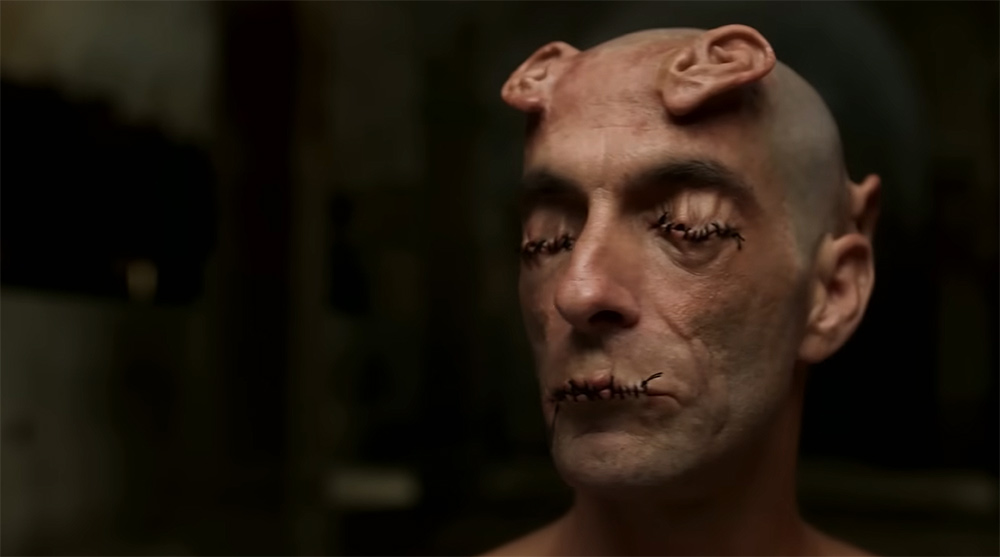Crimes of the Future marks a return by director David Cronenberg to the genre of science fiction body-horror – the territory which made him famous, and which he played a pivotal role in popularising.
The film takes place in a world in which human evolution has begun to accelerate in response to precipitous environmental decline and technological changes. Most people no longer feel pain or suffer from infections; as a result, aimless mutilation of oneself and others is a popular pastime, surgical qualifications are irrelevant, and performance art has entered a depraved new phase.
The protagonist is Saul Tenser (Viggo Mortensen), who suffers from a unique condition whereby he periodically develops new, seemingly purposeless organs. As a result, he is dependent on special biomechanical furniture to sleep, eat, and manage his suffering. Together with his collaborator Caprice (Lea Seydoux), Saul puts on popular routines where his superfluous organs are removed in front of a live audience, using a machine intended for carrying out autopsies.
There is a clear parallel here between Tenser’s displays of the grotesque and the gratuitous and Cronenberg’s own oeuvre. Cronenberg has stated as much in interviews; and in certain respects, Crimes of the Future works as an apologetic for the director’s previous forays into body horror. Cronenberg seems to want to remind us that his art was never purely about spectacle; it has a moral and intellectual purpose. Like Saul, Cronenberg is seeking to graphically demonstrate the direction of humanity’s decline.
It is for this reason that Crimes of the Future, despite marking a return to familiar Cronenberg subject matter, feels subtly different in tone. The film’s narrative deals with the government’s attempt to suppress a sect of radicals who have surgically altered their bodies to adapt to a world full of garbage. However, this premise often falls slightly into the background – which actually works well in the context of the movie, depicting as it does a world overcome by nihilism and apathy.
There is a strong sense of absurdism pervading the whole film, but especially in Tenser’s dealings with a government office tasked with registering and cataloguing new organs as they emerge. Kristen Stewart gives a good performance as Timlin, an utterly perverse bureaucrat who is creepy even by the standards of her society. At times, the film feels like a series of oblique, loosely connected routines. Crimes of the Future definitely leans harder on satire and less on horror; there are a few disturbing moments, but unlike his other films, Cronenberg does not seem to be aiming primarily to nauseate.
Crimes of the Future works because it contains some genuinely very interesting ideas – about the plasticity of the human body in response to technological and environmental change (think of the bone spurs children are supposedly developing at the back of their skulls due to smartphone usage) – and about the parallel nature of environmental and social decay. There is also a sense of muted pathos which is absent from most of his other work. The film ultimately centers on the death of a child, and the uses to which various parties try to put the child’s body.
Crimes of the Future is also based on some uniformly excellent performances. The cast’s deadpan, unexcitable delivery provides a perfect counterpoint to the film’s ambitious concepts and prevents it from tipping over from satire into farce. The biomechanical designs are also excellent, and are used more sparingly than in Cronenberg’s previous work. Apart from those designs, most of the film looks like it could be taking place in the present day – giving a sense of a future where any actual progress is impossible, except for the development of new aberrations.
What I particularly liked was that the film’s titular crimes are never specified – they are everything we are doing now, and everything we will continue to do to ourselves, our planet, and our children. In that sense, Crimes of the Future feels truly apocalyptic.
Crimes of the Future is currently playing in cinemas.


